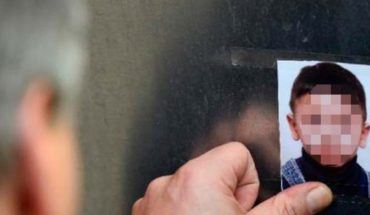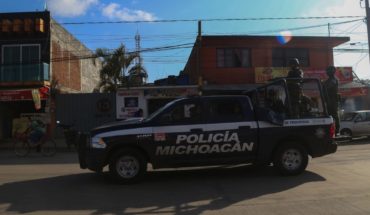Santiago de Chile.- Situations of human rights violations during protests in Chile are “very serious and repeated” during the three weeks of demonstrations throughout the South American country, as stated on Saturday by the director of the National Institute for Human Rights (INDH), Sergio Micco.In a joint interview for the Efe Agency and the British agency Reuters, Micco stated that from the institution, a state but independent and independent body that monitors the protests from day one, they have noted have brought 262 legal actions in this regard.
“We consider human rights violations to be serious and repeated and there are some kinds of violations repeated many times,” he said. The director of INDH indicated that these events were found by the 182 members of the agency working around the country as observers during the protests, with the wounded in hospitals and detainees in police stations, although he found it’s the job of the justice to determine if there were human rights violations.
Micco. / EFE.
“We need justice and speed in court proceedings so that sanctions against human rights violators become flesh,” he said. EXCESSIVE USE OF FORCEIn this regard, Micco indicated that the INDH has found in the demonstrations police abuses such as excessive use of force, shots of pellets, rubber balines or tear gas or illegal detensions against peaceful protesters. In the case of those shot, the balance amounts to 1,003 injured out of a total of 1,915, more than half of the total observed, and of them 579 per pellets.” The situation we are most concerned about is the use of pellets. There are 579 people who have been injured by pellets and have caused 182 eye injuries. The Minister of Health himself (Jaime Máñalich) has just declared that we are facing a violation of human rights,” Micco explained.
Micco. / EFE.
These cases, as Efe has seen on the ground, occur daily and health posts near the protests perform first aid at every demonstration by Carabineros shooting.” According to protocols, Carabineros only has the right to use the pellets in the event of active aggression that jeopardizes physical integrity,” Micco said, adding that “many times” they have observed “that pellets are used in situations where the demonstration is peaceful.” TORTURAS AND ABUSES TO DETAINSWhen the work of the INDH is carried out in the police stations visiting after the demonstrations, the human rights violations found range from cases of torture to sexual abuse.” Other important cases are the torture claims with sexual connotations, for example nudes, and Carabineros’ own protocol since March of this year prohibits it, or squats. We had one case of threats of rape and two rapes of men,” Micco said. Among these cases, 201 complaints have been filed for torture and other cruel treatment, 91 for torture with sexual violence and 5 for murder, among others. In the Metropolitan region alone, to which Santiago belongs, where there are the largest number of demonstrations, 45 cases of abuse of power against detainees by uniforms in police precincts have been found. HOMICIDEIn three weeks of protests, the figures handed down by the Chilean government count 20 deaths, six of them foreign citizens. Of the total deaths, five of them allegedly occurred at the hands of state agents, whether police or military, who were in charge of law during the states of emergency and curfews decreed by President Sebastián Piñera in the first days of protests. GOVERNMENT CONFIRMS POLICE ABUSES, BUT DOES NOT SPEAK OF VIOLATIONS OF HUMAN RIGHTSThe Executive confirms situations of police abuses and excesses, as Piñera acknowledged in an interview with a local newspaper published this Saturday. However, with regard to human rights violations, the president preferred to aim for “prudence” and leave it to justice, referring to the issue on a regular basis in his statements with the phrase “unrestricted respect for human rights” by the Executive.The protests began on 18 October in response to the rise in the price of metro passage, but they later became a popular clamor against the government and the unequal economic model of the country.





